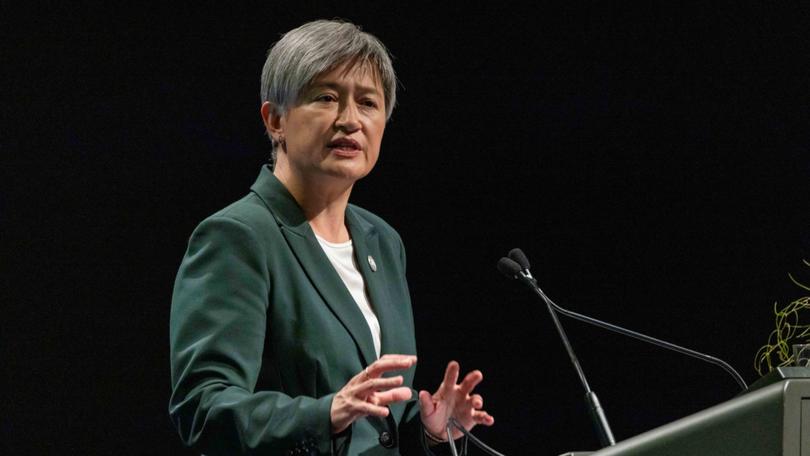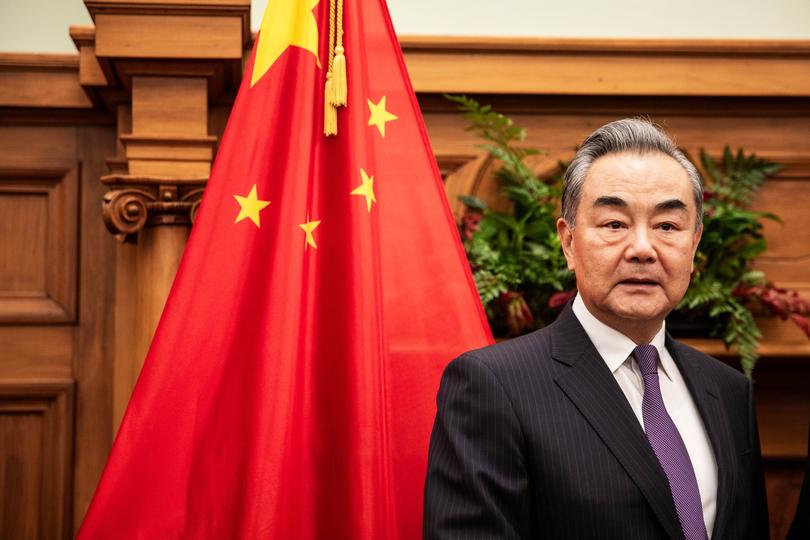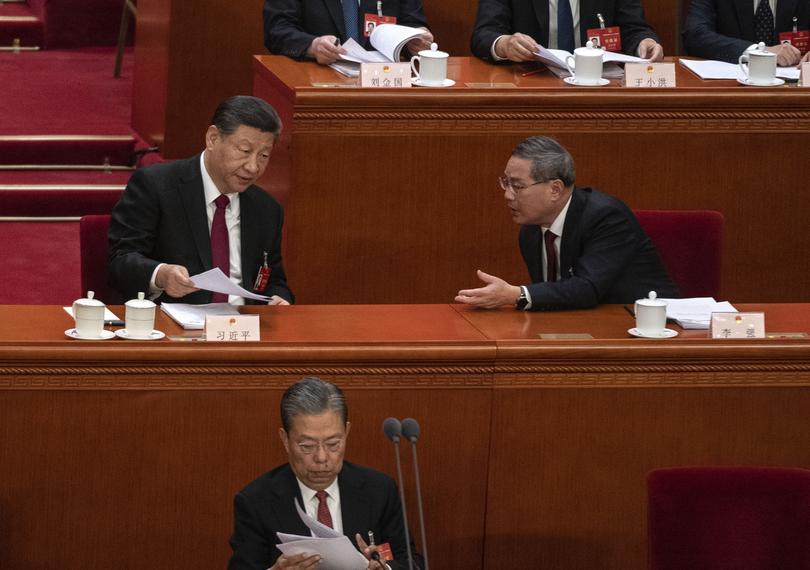Penny Wong raises nickel volatility with China’s foreign minister Wang Yi during ‘frank’ talks
Australia and China’s relationship has stabilised but Foreign Minister Penny Wong made it clear during talks there are outstanding concerns about nickel, lobsters, and global security.

Australia is on track to host Chinese Premier Li Qiang later this year but outstanding trade issues, including on lobsters, continue to be a drag on the relationship between the two countries.
Foreign Minister Penny Wong also raised Australia’s concerns about volatility in the global nickel market during talks with her counterpart Wang Yi in Canberra on Wednesday.
That volatility has seen plunging global prices driven by Chinese money pouring into Indonesian mines and processors, pushing Australia’s nickel industry to the brink of collapse.
Sign up to The Nightly's newsletters.
Get the first look at the digital newspaper, curated daily stories and breaking headlines delivered to your inbox.
By continuing you agree to our Terms and Privacy Policy.Senator Wong said she made it clear during the frank discussion that “predictability in business and trade is in all our economic interests”.
While significant progress has been made in stabilising the relationship over the past 18 months, there are still trade impediments on Australian goods including lobsters and some red meats.
China recently released an interim report on lifting tariffs on Australian wine, and Mr Wang reiterated that a final decision would be issued by the end of March.
He said both sides had been “ready to properly resolve some issues with a more positive attitude”.
Last week, Industry Minister Ed Husic issued a notice via the anti-dumping commission that tariffs on Chinese wind towers, in place since 2014, would not continue after their scheduled end date of April 16.
Ahead of the foreign ministers meeting, the Chinese Communist Party’s English-language publication The Global Times said that decision was “undoubtedly a positive signal, indicating that the Australian government has begun to take a more pragmatic approach toward trade issues with China”.
Senator Wong denied there was any connection between the wine and steel disputes.
She said questions about progress towards a resolution for Australian lobster exports should be put to Chinese officials.

Preparations for Mr Li to visit Australia later this year are on track, with both sides agreeing on Wednesday how to push ahead with those plans.
The resumption of regular bilateral talks between leaders was a key outcome of Prime Minister Anthony Albanese’s visit to Beijing last year, a move Senator Wong said would add “ballast and stability” to the relationship.
“We seek a stable and productive and mature relationship with China,” she said after the Canberra talks.
“A stable relationship between Australia and China doesn’t just happen. It needs ongoing work. And this was the latest meeting in that process.”

Mr Wang acknowledged, as did Senator Wong, that differences would always exist between the two countries but said it was possible to rise above them.
However, he offered a veiled warning about letting other influences such as the US overly sway Australia’s thinking.
“In Australia’s foreign policy, the development of our relations does not target any third party and should not be affected or disrupted by any third party,” he said during the meeting’s opening.
“All in all, our relations are now on the right track so we shouldn’t hesitate. We shouldn’t let it veer off course and shouldn’t go backwards.”
Senator Wong also canvassed human rights issues, the death sentence handed to Australian writer Yang Hungjun, other citizens facing death penalties, and Australia’s serious concerns about unsafe conduct at sea including recent encounters between Chinese and Philippines vessels in the South China Sea.

